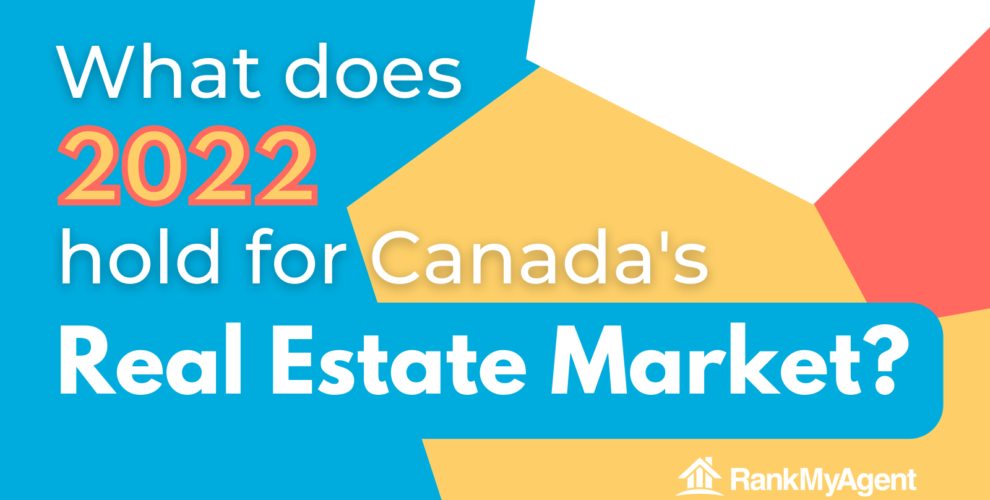A recap of 2021
2021, like 2020, was once again a unique year for our National Real Estate Market. According to the Canadian Real Estate Association, monthly home sales were not as volatile as 2020 but still more volatile than what was seen in Canada during the 2008-09 financial crisis.[1] The high of monthly sales reached 807 250, contrasted with the low of 650 000 sales. This volatility took place in the macro situation of the COVID-19 pandemic and low-interest rates spurred by the Bank of Canada. The national average home price rose about 21% to $687 500 and is expected to increase again in 2022. The continued movement in the market made housing a top-button issue during the 2021 election, with the winning Liberal government set to implement their housing plan over the next four years. 2022, like the pandemic years before, is again looking to be a historic year for Canada’s housing market.
What’s in store for 2022?
The consensus seems to be that while 2022 will not feature the astronomical growth rates of 2021, the market is still set to increase, albeit at lesser growth rates than previous years. This year, the average price is still set to grow to $718 000 by 5.6%, per the CREA. As a result, Canada’s major urban centres such as Toronto or Vancouver as forecasted as having an enormous amount of risk in the annual global real estate bubble index.[2] Toronto specifically has been earmarked as having the second-largest housing bubble globally by Swiss bank UBS.[3]

While the housing markets of Toronto and Vancouver tend to dominate the conversation, REMAX anticipates the markets of other areas in Canada to start generating more buzz. In Atlantic Canada, Moncton and Halifax are expected to see increased prices respectively by 20% and 16% this coming year. Western Canada is expected to remain a sellers’ market in 2022, spurred by homebuyers hailing from Ontario and British Columbia.
Regarding BC, it appears that consumers are moving to regions outside of Vancouver. This trend is expected to maintain due to tight housing supply and powerful demand. In BC, buyers are moving to suburban areas outside the Greater Vancouver areas, such as Victoria and Nanaimo offer more affordable alternatives.
Ontario and Toronto offer a parallel situation to BC and Vancouver. It is expected that areas outside of the GTA, such as North Bay, Thunder Bay, Collingwood, Ottawa, and the Durham region, are expected to have increased average sales prices. Unless meaningful regulatory action is taken, these trends are likely to hold.[4]
2022: New regulations?
With Canadians looking to their government to act on the real estate market, 2022 may bring new laws and regulations. After September’s Federal election, we saw jurisdictions looking to make changes. In British Columbia, the province wants to create a cooling-off period where consumers have a few days after a sale to back out. This is reminiscent of cooling-off periods for pre-built condominiums in BC and Ontario but is instead targeted towards newly built homes.[5] As cooling-off periods are already found across Canada, BC adopting this new measure may set off a domino effect of other jurisdictions following suit.
The government is considering changing the rules regarding down payments on investment properties on a federal level. The Ministry of Housing Diversity and Inclusion and the Canada Mortgage and Housing Corporation specifically aim to target speculative investing. The Ministry sees speculative investing as something that causes Canadians to “overbid on properties, borrow beyond what they can afford, and push home prices even higher.” While they have not yet suggested a specific amount of which to increase the current 20% down payment that investors pay, industry professionals agree that an increase can curb the speculative market. [6]
When examining the mandate letter for the Ministry of Housing and Diversity and Inclusion, it is apparent the proposed increase in the down payment is in line with what the MInistry seeks to do in 2022. The mandate letter committed to other actions that seek to curb speculative investing in the real estate market, including, but not limited to:

Housing predictions and regulation – it’s all related
Of course, predictions are rarely accurate without some aberration in real-life results. Still, based on past trends, the experts are likely correct that housing prices are likely to increase. Demand is also set to increase outside of the major areas of Toronto and Vancouver due to unaffordability in those urban centres.
The main element set to affect the predicted trends are the regulatory actions’ that provinces, municipalities, and the federal government may take. Drastic new legislation may create powerful changes in the market – although such legislation can take months or years to have a visible effect. Outside of regulatory impact, it seems that the predictions of 2022’s housing market are set to be true.
[1] CREA: Quarterly Forecasts https://www.crea.ca/housing-market-stats/quarterly-forecasts/
[2] MacLean’s – Canada’s real estate market in 2022: What to expect in the new year https://www.macleans.ca/economy/canada-real-estate-outlook-2022/
[3] REMAX: Investors Remain Active in the Hot Canadian Housing Market https://blog.remax.ca/investors-remain-active-in-the-hot-canadian-housing-market/
[4] REMAX: 2022 Canadian Housing Market Outlook http://download.remax.ca/PR/2022CanadianHousingMarketOutlookReport_FULL.pdf
[5] British Columbia: BC working to strengthen protection for home buyers https://news.gov.bc.ca/releases/2021FIN0070-002097
[6] Financial Post: CMHC to review down payments on investment properties as part of federal strategy to tackle housings risks https://financialpost.com/real-estate/mortgages/cmhc-to-review-down-payments-on-investment-properties-as-part-of-federal-strategy-to-tackle-housing-risks

